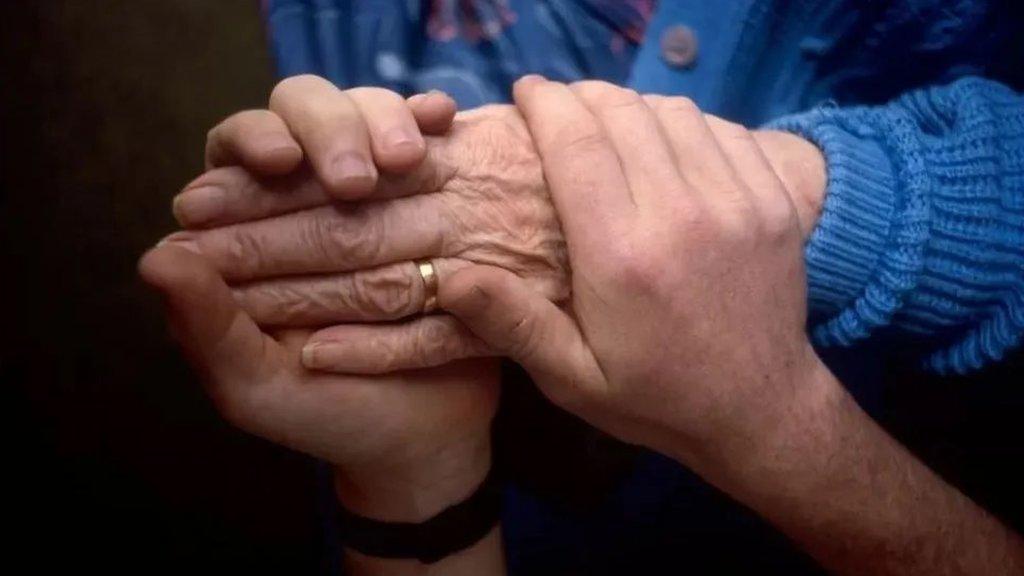Widow backs assisted dying law in appeal to politicians
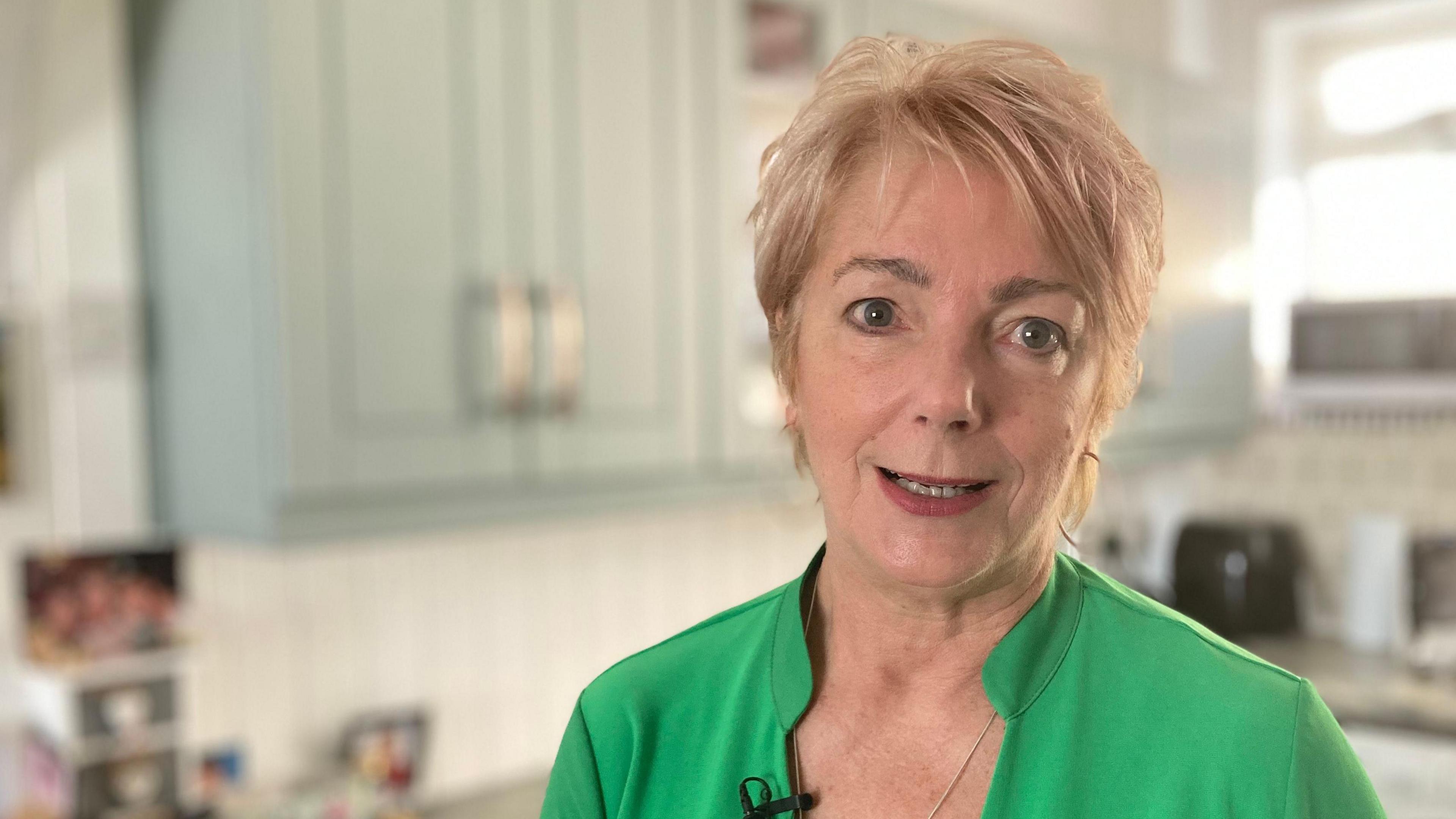
Julie Theinpont supports introducing assisted dying in the Channel Islands
- Published
A Guernsey woman is backing the campaign to legalise assisted dying in the Channel Islands after her husband's "beautiful" death.
Julie Theinpont has spoken about how her husband Guy chose to end his life, as Jersey’s States Assembly is set to debate the details of landmark legislation this week.
If passed, the law will give people with terminal illnesses the choice to die by medically-supervised euthanasia under certain criteria if their suffering is unbearable.
It will also be debated in Guernsey later in the year, after a survey from the charity Dignity in Dying found most islanders supported a law change.
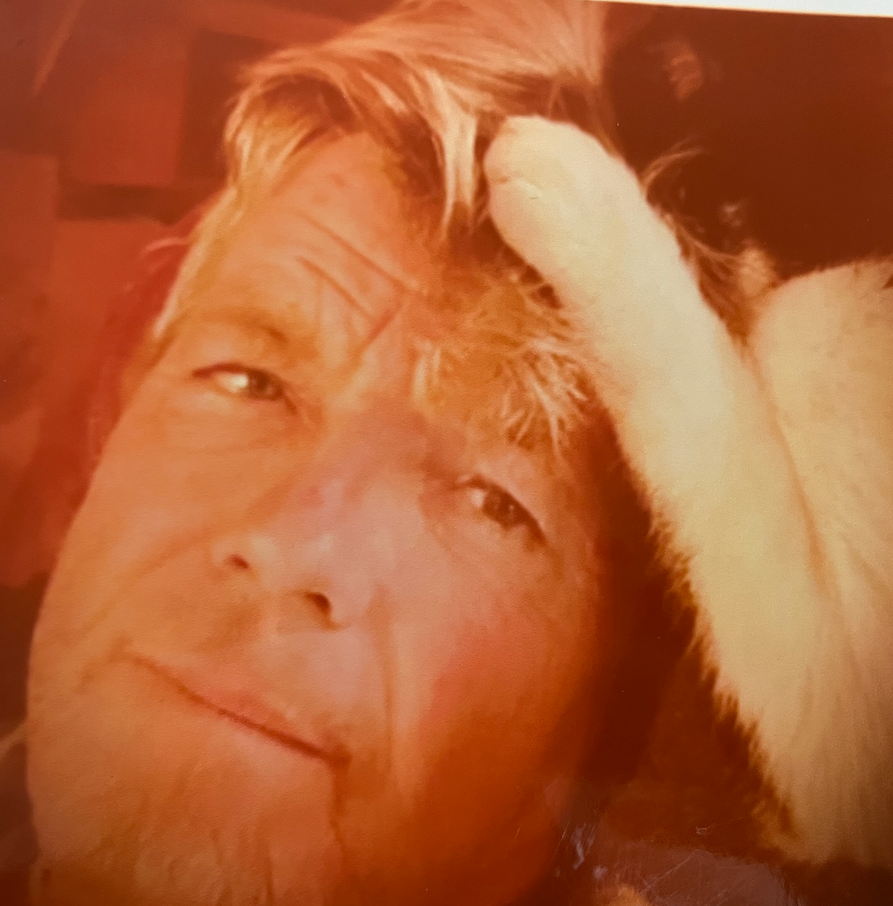
Belgian Guy Theinpont had a lifelong love of the outdoors and choose to die in his mountain home in Spain
Mr Theinpont was one of the first people to choose euthanasia in Spain, Julie said, adding that other people facing terminal illness should also have the right to choose.
The 63-year-old medical receptionist said he developed inoperable asbestos-related lung cancer after inhaling the toxin working as a young man.
She said: "Straight away on diagnosis he said he wanted to be able to have assisted dying.
"He said it years ago before he was sick, if ever anything happened to him, that's how he wanted to go. It was very important to him to have the choice of how he would end his days."
Julie and Belgium-born Guy met in later life and spent time together in Guernsey.
They went on to settle in Spain from 2010, where, in 2021, it became one of only a handful of countries in the world to legalise assisted dying.
She said: "They thought he was just paying lip service to it because it had only just come it.
"When they said: 'We are not sure it has to go before a board,' he stood up and said: 'It's my life; it's my death - I want to choose,' and they took him seriously from that point, and the ball started to roll.
"It wasn't a difficult process; but a very thorough process."
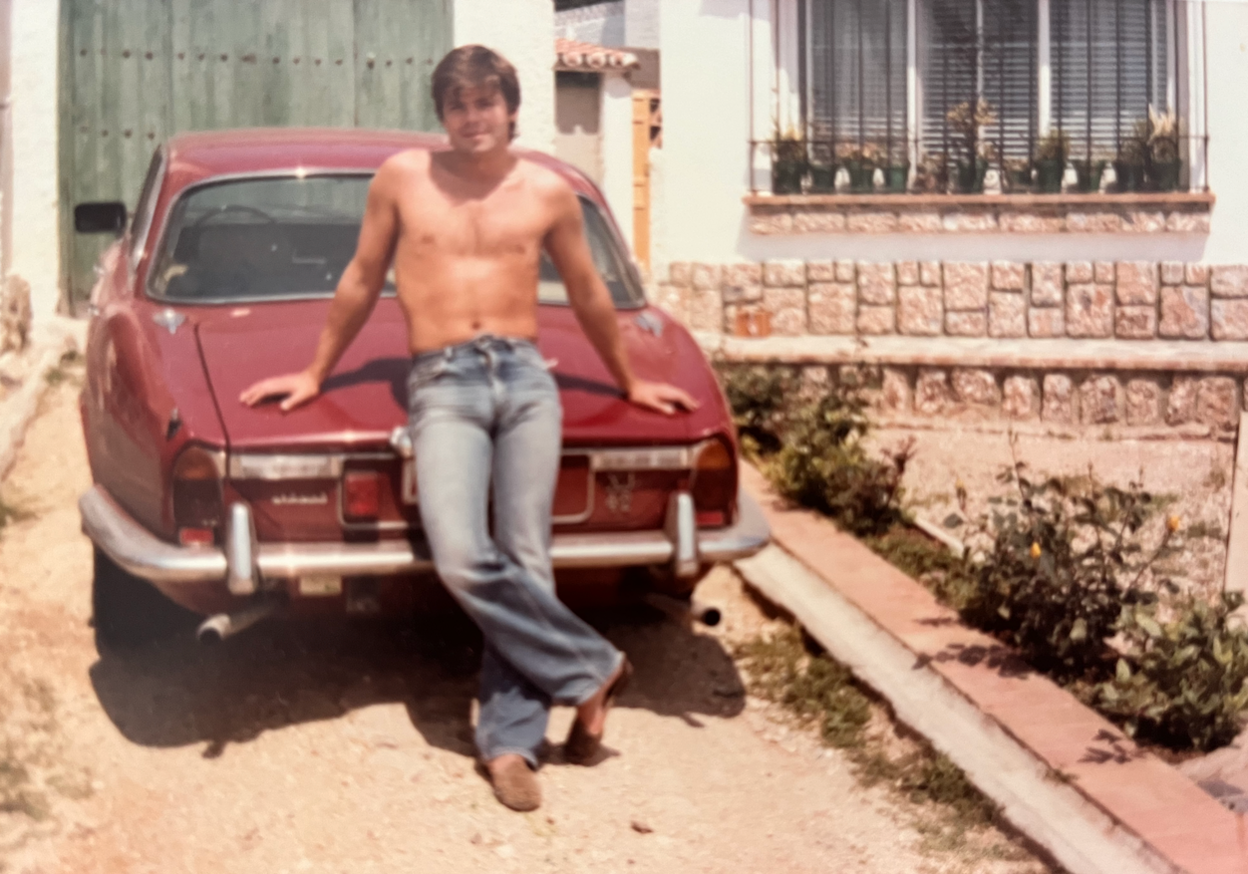
Guy Theinpont worked in the shipyards where he inhaled asbestos which led to his cancer in later life
Julie said she feared that, if Guy was not given the option, she may have had to take matters into her own hands to honour her husband’s last wishes.
She recalled: "I was a bit worried because, if he doesn't get assisted dying, he may well ask me to do something - that's how strongly I knew he felt about it - so I was afraid, and afraid he would do something to himself."
But the process was easier than she anticipated, she insisted.
She said: "We talked and length about it and I had to sign paperwork too. But I absolutely knew that was the route we were going down.
"It was his choice - it might not be my choice when it's my turn, but choice is what it is all about."
He later died after doctors administered intravenous drugs at their mountain home near Malaga - with the final process taking 10 minutes.
But the decision as to when it happened was his to make.
Julie said: "I think he was so courageous. When he was ready to do it, he said: 'I want to talk to you'.
"He said: 'I am going to make a call.'"
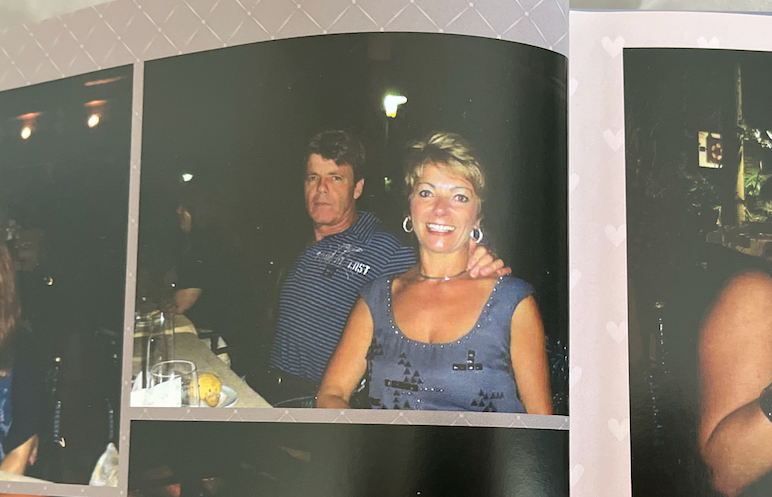
Julie and her husband Guy lived in Guernsey and then Spain for more than 10 years
"He was holding my hands and he told me: 'Just promise me one thing - you won't talk me out of it this time because you make it too difficult,' so I made that promise - a big one," Julie said.
"The respect and the love I had for him helped me do that, and I could see it was what he wanted and how he wanted it to be."
Two days later doctors arrived at the couple's home where they were able to surround themselves with close family and friends.
It was an experience she did not wish to have, but one, she said, she would hold precious.
She said: "It was a beautiful time and it stuck in my mind of the peace and serenity of his passing. I am left with that as a memory.
"We were able to say things to each other knowing it was a goodbye. It was beautiful and it's in my heart.
"From the moment he was sick to the day he passed, the love multiplies - it's almost like whatever you shared in the past is magnified when you know your time is limited - the closeness grew so much between us.
"It was so fulfilling to say these words and be able to say them because some people might not be able might leave it till the end and its too late."
Looking back on that time and beyond the initial feelings of guilt, Julie said her views on the right to die were resolute and she hoped it would soon be the reality in the Channel Islands.
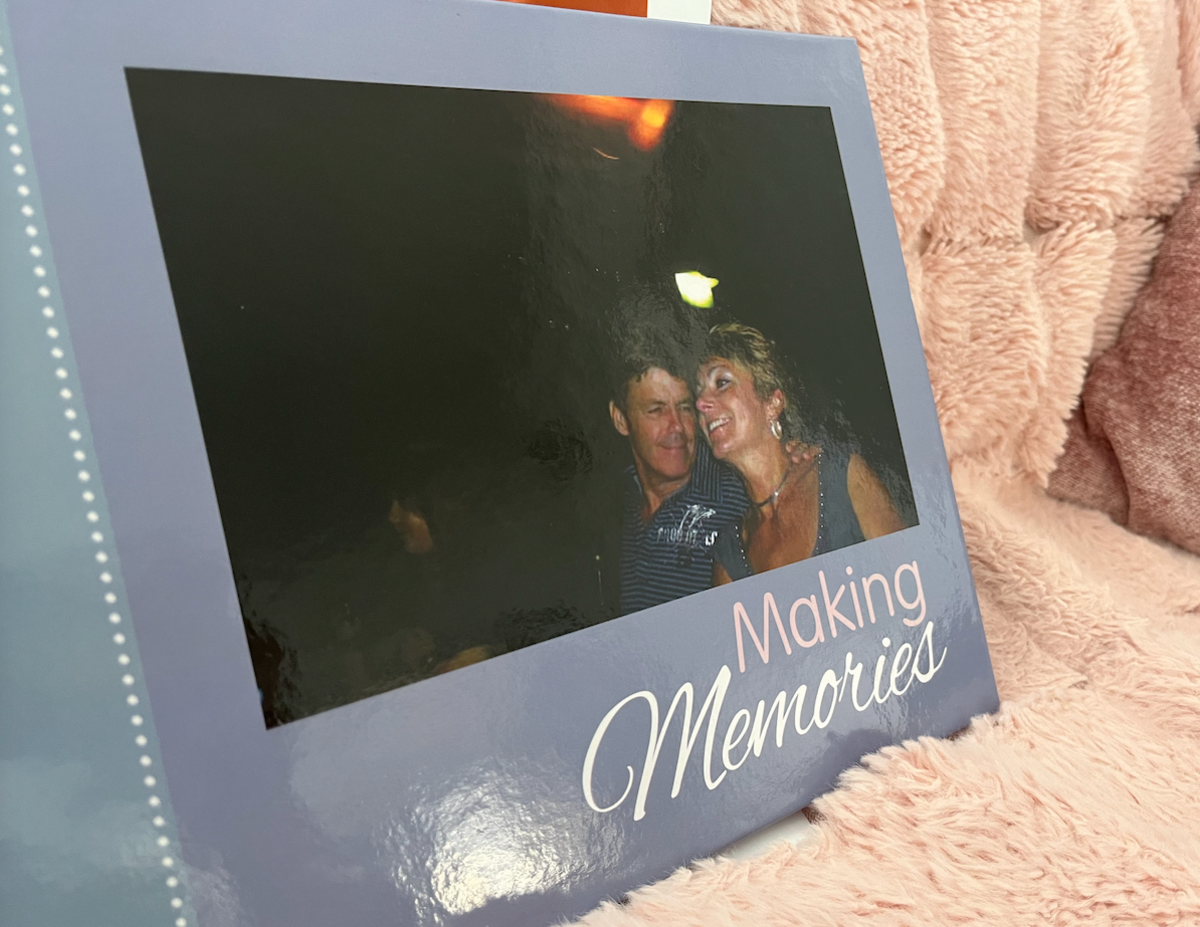
Julie often recalls the good times she had with her late husband
She also insisted she trusted the legal process to ensure adequate safeguarding.
She said: "I truly believe that it should be brought in as a law that people can choose to die with dignity. It is only a choice that is offered; we are not saying you have got to do this.
"It would be really good if we could pass this through and set the bar a little bit."
Her message to politicians on the island is clear, telling Guernsey States members to "look at the statistics" showing islanders are overwhelmingly in support of it.
And, although it was a deeply painful experience, Julie said she hoped that others like Guy battling chronic pain and degenerative illness would have the choice to say goodbye while they were still able.
Julie said her husband thanked everyone in the moments before the procedure was administered and even joked.
She said: "We were holding hands. I had told him don't be afraid and he said: 'I am not afraid.'
"And the last words that he said were: 'That is what I like to see - everybody laughing.'"
The Legal Right to Die
Assisted suicide is legal in some states in the US, Columbia and five European countries: Germany, Spain, Belgium, the Netherlands and Luxembourg.
But it is currently banned in England, Wales and Northern Ireland, carrying with it a maximum prison sentence of 14 years.
Under Scots law, it is possible that helping a person to die could lead to prosecution for murder.
In the Isle of Man, assisted dying is supported by the island’s parliament and it could be legalised next year.
Jersey's Assembly agreed to look further at the topic in November 2021.
The vote in Jersey will look at specific proposals for those with a terminal diagnosis, as well as for with a chronic physical conditions "causing unbearable suffering".
If approved, the new legislation will likely come in no sooner than the summer of 2027.
In England, it is expected to be the subject of debate after the next General Election.
In Scotland, a private member's bill to legalise assisted dying by 2025 was introduced in March and is set to be debated later in the year.
If these issues have affected you support is available on BBC Action Line.
Follow BBC Guernsey on X (formerly Twitter), external and Facebook, external. Send your story ideas to channel.islands@bbc.co.uk, external.
Related internet links
- Published29 April 2024
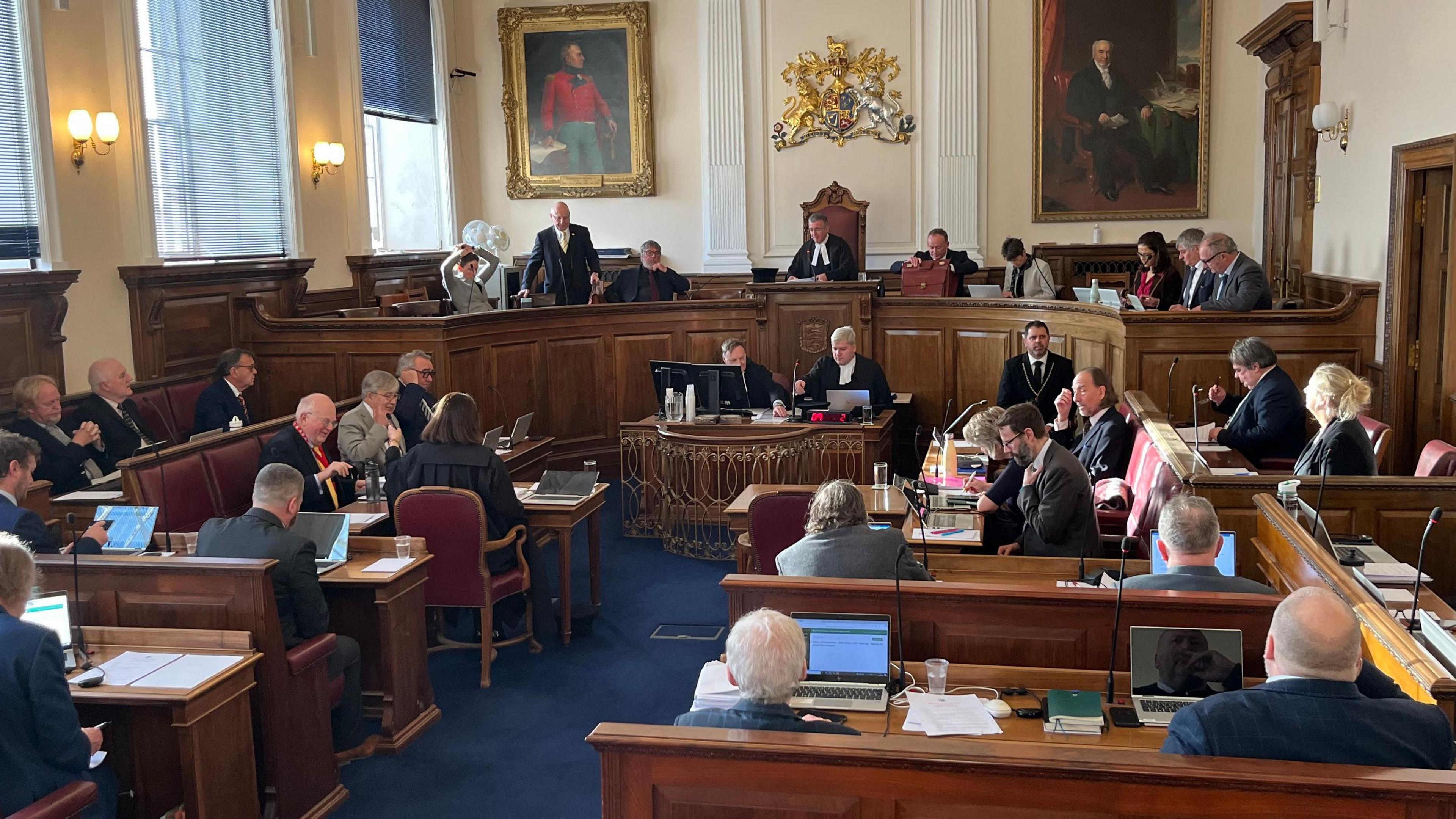
- Published5 March 2024
